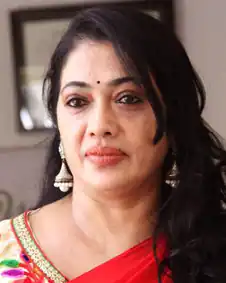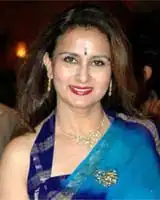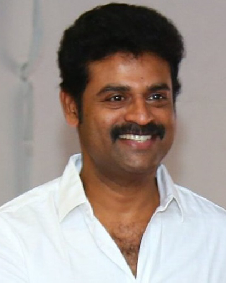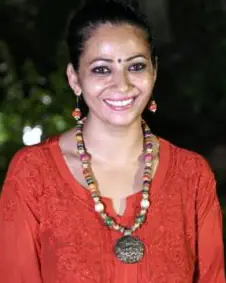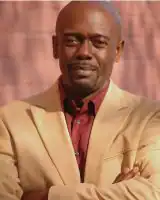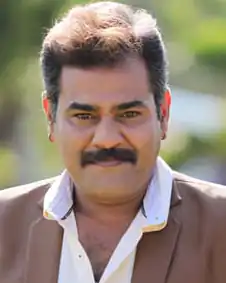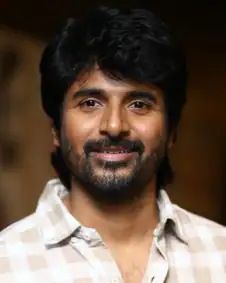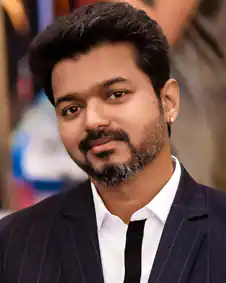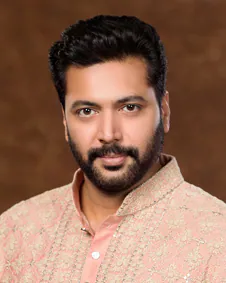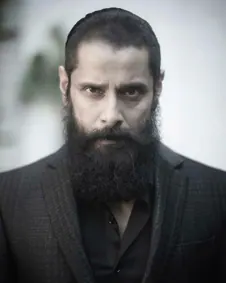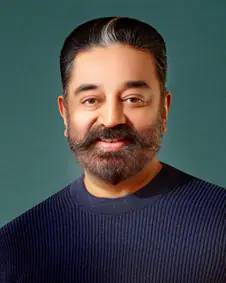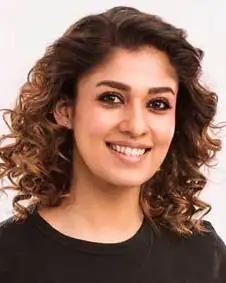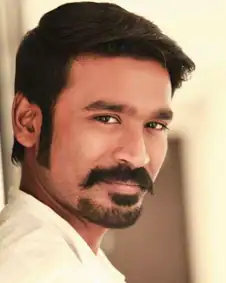X
Veturi Sundararama Murthy
Lyricst
Veturi Sundararama Murthy Biography
Veturi Sundararama Murthy, popularly known as Veturi, was a Telugu writer mostly popular for his film songs. His career in the Telugu film industry spanned more than four decades. Veturi was born to Chandrasekhar Sastry and Kamalamba in Pedakallepalli, near Machilipatnam, Krishna District, in an orthodox Telugu Brahmin family.
Veturi is a nephew of the Telugu Research Scholar Veturi Prabhakara Sastri. His grandfather Veturi Sundara Sastry was also a poet.
Career
Veturi joined Andhra Prabha as a journalist in 1952, after his education. He learned the basics of editing a news article from his senior at Andhra Prabha, Narla Venkateswara Rao, whom he considers his first teacher. In 1959, he joined a weekly called Andhra Patrika, where Bapu and Mullapudi Venkata Ramana were his colleagues. He was the in-charge of the Cinema section at Andhra Patrika. He also worked for the Andhra Pradesh Congress Committee's official daily newspaper, called Andhra Janata, as an editor.
In 1962, he became the first and only Telugu journalist to interview the then-Prime Minister, Jawaharlal Nehru, who came to inaugurate Srisailam Hydroelectricity project. He covered the speeches of national leaders like Sarvepalli Radhakrishnan.
In 1964, he worked as an assembly reporter. His articles are said to be very catchy and witty. For instance, he referred to the meeting of MLA's in Hotel Dwaraka, near the Andhra Pradesh State Assembly as "Adigo Dwaraka- Evigo Alamandalu" (This is Dwaraka and here are the cattle). His writing style caught the attention of the film industry due to his prowess in using traditional poetic rules related to alliteration and rhyme for describing current affairs.
Film Industry Career
Veturi had contacts with the Telugu film industry during his days as a journalist. He used to meet veteran lyric writer Dasarathi often. Legendary director Chittor V. Nagaiah offered him a role in his film, Naa Illu. However, two days before the shooting began, Veturi decided not to act, as he felt that he was not fit for acting, and wrote a letter of apology to Nagaiah for rejecting his offer.
Sri. N.T. Rama Rao invited him to join the film industry as a lyricist. In 1974, he wrote his first song, "Bharatanaari Charitamu" in the form of Harikatha, for O Seeta Katha under the direction of the legendary director, K Viswanath. In 1977, actor Sr. N.T.R's Adavi Ramudu showcased Veturi's talent for penning inspirational and romantic lyrics.
The album was an instant hit among various audiences. In 1978, K Viswanath's Siri Siri Muvva proved his prowess in expressing diverse emotions with poetry. Aathreya, the leading lyricist in those days, was known to take days for writing a song. Veturi became the first choice for directors and producers too because of his ability to write a song to director's taste in a few minutes.
He went on to pen more than 5000 songs in his career. He wrote more mass numbers for movies like Vetagadu and Driver Ramudu, and classics for movies like Sankarabharanam and Sagara Sangamam. In particular, Sankarabharanam stood as a landmark in the Telugu film industry.
After the surge of his popularity during 1970s, he went on to work with a variety of directors and actors in the 1980s. He wrote classics for directors like Singeetam Srinivasa Rao, Dasari Narayana Rao, Bapu, Jandhyala, Vamsy and mass numbers for directors like Raghavendra Rao, A. Kodandarami Reddy, Vijaya Bapineedu.
He delivered a number of hits for senior actors like Sr. N.T.R, Akkineni Nageswara Rao, Shobhan Babu, Krishnam Raju, Ghattamaneni Krishna and upcoming stars like Chiranjeevi, Nandamuri Balakrishna, Nagarjuna, Daggubati Venkatesh.
This golden period in his career saw memorable albums like Saptapadi, Subhodayam, Subhalekha, Sagara Sangamam, Meghasandesam, Mudda Mandaram, Malle Pandiri, Nalugu Stambhalata, Rendu Jalla Seetha, Amarajeevi, Sreevariki Prema Lekha, Ananda Bhairavi, Srivari Sobhanam, Mogudu Pellalu, Chantabbai, Sitaara, Anveshana, Alapana, Mayuri, Amavasya Chandrudu, Janaki Ramudu and Geethanjali.
During the late 1980s, Veturi's mass numbers garnered a lot of response from the public, resulting in directors demanding more and more of them. However, Veturi still maintained his balance between classics and mass-numbers with movies like Jagadeka Veerudu Athiloka Sundari, Sarigamalu, Seetharamayya Gaari Manavaralu, Mathru Devo Bhava, and Mechanic Alludu.
Veturi was given the opportunity to dub many Tamil, Malayalam and Hindi movies. Some of his dubbed albums, for instance Iruvar and Devaraagam, received wide acclaim. During this period, Veturi created classics like Gangotri and Swarabhishekam. His association with young directors like Sekhar Kammulaand Gunasekhar produced some memorable albums, like Anand, Godavari, Varudu, and Leader.
Veturi is a nephew of the Telugu Research Scholar Veturi Prabhakara Sastri. His grandfather Veturi Sundara Sastry was also a poet.
Career
Veturi joined Andhra Prabha as a journalist in 1952, after his education. He learned the basics of editing a news article from his senior at Andhra Prabha, Narla Venkateswara Rao, whom he considers his first teacher. In 1959, he joined a weekly called Andhra Patrika, where Bapu and Mullapudi Venkata Ramana were his colleagues. He was the in-charge of the Cinema section at Andhra Patrika. He also worked for the Andhra Pradesh Congress Committee's official daily newspaper, called Andhra Janata, as an editor.
In 1962, he became the first and only Telugu journalist to interview the then-Prime Minister, Jawaharlal Nehru, who came to inaugurate Srisailam Hydroelectricity project. He covered the speeches of national leaders like Sarvepalli Radhakrishnan.
In 1964, he worked as an assembly reporter. His articles are said to be very catchy and witty. For instance, he referred to the meeting of MLA's in Hotel Dwaraka, near the Andhra Pradesh State Assembly as "Adigo Dwaraka- Evigo Alamandalu" (This is Dwaraka and here are the cattle). His writing style caught the attention of the film industry due to his prowess in using traditional poetic rules related to alliteration and rhyme for describing current affairs.
Film Industry Career
Veturi had contacts with the Telugu film industry during his days as a journalist. He used to meet veteran lyric writer Dasarathi often. Legendary director Chittor V. Nagaiah offered him a role in his film, Naa Illu. However, two days before the shooting began, Veturi decided not to act, as he felt that he was not fit for acting, and wrote a letter of apology to Nagaiah for rejecting his offer.
Sri. N.T. Rama Rao invited him to join the film industry as a lyricist. In 1974, he wrote his first song, "Bharatanaari Charitamu" in the form of Harikatha, for O Seeta Katha under the direction of the legendary director, K Viswanath. In 1977, actor Sr. N.T.R's Adavi Ramudu showcased Veturi's talent for penning inspirational and romantic lyrics.
The album was an instant hit among various audiences. In 1978, K Viswanath's Siri Siri Muvva proved his prowess in expressing diverse emotions with poetry. Aathreya, the leading lyricist in those days, was known to take days for writing a song. Veturi became the first choice for directors and producers too because of his ability to write a song to director's taste in a few minutes.
He went on to pen more than 5000 songs in his career. He wrote more mass numbers for movies like Vetagadu and Driver Ramudu, and classics for movies like Sankarabharanam and Sagara Sangamam. In particular, Sankarabharanam stood as a landmark in the Telugu film industry.
After the surge of his popularity during 1970s, he went on to work with a variety of directors and actors in the 1980s. He wrote classics for directors like Singeetam Srinivasa Rao, Dasari Narayana Rao, Bapu, Jandhyala, Vamsy and mass numbers for directors like Raghavendra Rao, A. Kodandarami Reddy, Vijaya Bapineedu.
He delivered a number of hits for senior actors like Sr. N.T.R, Akkineni Nageswara Rao, Shobhan Babu, Krishnam Raju, Ghattamaneni Krishna and upcoming stars like Chiranjeevi, Nandamuri Balakrishna, Nagarjuna, Daggubati Venkatesh.
This golden period in his career saw memorable albums like Saptapadi, Subhodayam, Subhalekha, Sagara Sangamam, Meghasandesam, Mudda Mandaram, Malle Pandiri, Nalugu Stambhalata, Rendu Jalla Seetha, Amarajeevi, Sreevariki Prema Lekha, Ananda Bhairavi, Srivari Sobhanam, Mogudu Pellalu, Chantabbai, Sitaara, Anveshana, Alapana, Mayuri, Amavasya Chandrudu, Janaki Ramudu and Geethanjali.
During the late 1980s, Veturi's mass numbers garnered a lot of response from the public, resulting in directors demanding more and more of them. However, Veturi still maintained his balance between classics and mass-numbers with movies like Jagadeka Veerudu Athiloka Sundari, Sarigamalu, Seetharamayya Gaari Manavaralu, Mathru Devo Bhava, and Mechanic Alludu.
Veturi was given the opportunity to dub many Tamil, Malayalam and Hindi movies. Some of his dubbed albums, for instance Iruvar and Devaraagam, received wide acclaim. During this period, Veturi created classics like Gangotri and Swarabhishekam. His association with young directors like Sekhar Kammulaand Gunasekhar produced some memorable albums, like Anand, Godavari, Varudu, and Leader.
Celeb Birthdays
-
Nicholas D Agosto Apr 17
-
Rekha Apr 18
-
Poonam Dhillon Apr 18
-
Prem Kumar Apr 18
-
Aaliya Siddiqui Apr 18
-
Carl Gilliard Apr 18
-
Rajesh Nataranga Apr 18
Celebs In Spotlight
Enable




 Click it and Unblock the Notifications
Click it and Unblock the Notifications




